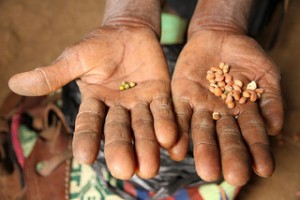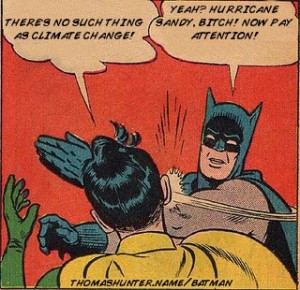While You Were Munching
North Kenya: “This is the last of my food…” (photo: Giro555 via Flickr)
You’ve given thanks for today’s grub, and now you’re dopey from the soporific effects of holiday gluttony. You’ve scraped the plates into the garbage disposal and kvetched about fitting all the leftovers in the fridge, or moaned about loosening your belt.
Shopped, cooked, eaten, stowed. Check, check, check, check.
Now add another item to your check list: a much-needed guilt trip.
• Climate change may have contributed to instability in these strife-filled locations: Libya, Mali and the Sahel, the Horn of Africa, Syria.
• Climate change has been and is killing people in Kenya, Ethiopia, and Somalia, even as I type this due to starvation rising from persistent drought and resulting famine.
• Climate change caused the two-day black out for 670 million Indians — that’s 1.5 times the population of the U.S., Canada, and Mexico combined without power for two days. Mind-fricking-boggling.
• Climate change effects from 2012 will result in increased food insecurity [PDF] for hundreds of millions of people for the next year and longer. If India didn’t have enough water for its crops, where will it buy food for its population? From the U.S. and Canada, which suffered huge crop losses? Even fisheries are negatively impacted.
There, guilt trip. Check.
On Monday after the turkey has worn off and the leftovers are gone, perhaps you’ll contact your Congress critter and demand immediate, proactive, and effective policy on climate change right after the turkey doldrums wear off.
Wish you and yours much to give thanks about this holiday.


